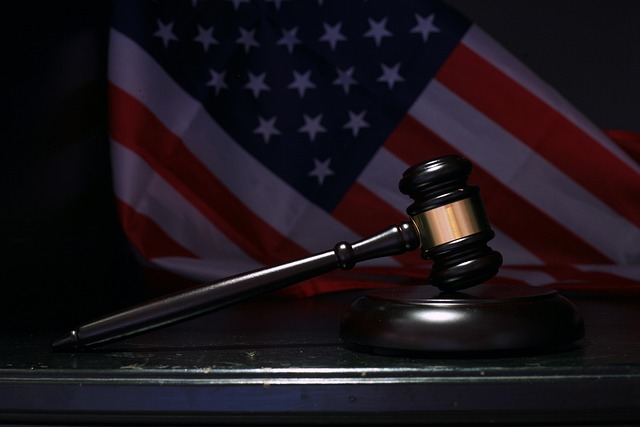Plea negotiations, a strategic alternative to trial, shape outcomes in white-collar and economic crime cases. Balancing benefits like reduced sentences with risks of harsher penalties post-trial, these discussions require skilled legal counsel. Understanding "How Plea Negotiations Affect Trial Outcomes" is key for informed decisions, impacting futures of accused individuals.
“Criminal law enforcement’s intricate dance revolves around plea negotiations, shaping trial outcomes. This article unravels the strategic essence of the plea bargaining process, delving into key factors influencing its outcome. We explore how these negotiations impact the rights and sentences of accused individuals, offering insights on effective strategies for optimal results. By understanding the dynamics of plea negotiations, legal professionals can navigate complex cases, ensuring just resolutions while mitigating potential consequences.”
- Understanding Plea Bargaining Process
- Factors Influencing Negotiation Outcomes
- Impact on Accused's Rights and Sentences
- Effective Strategies for Plea Negotiations
Understanding Plea Bargaining Process

Plea bargaining is a critical aspect of criminal law enforcement, offering a strategic alternative to trial. This process involves negotiations between prosecutors and defendants, where the defendant agrees to plead guilty or no contest in exchange for a reduced sentence or other benefits. Understanding how plea negotiations affect trial outcomes is essential for both legal professionals and those involved in the justice system. By evaluating the potential consequences and benefits, accused individuals can make informed decisions that could significantly impact their future.
The dynamics of plea bargaining are complex. For his clients facing charges, especially in cases involving white-collar and economic crimes, navigating this process requires strategic guidance. Skilled attorneys play a pivotal role in these negotiations, advocating for their clients’ interests while considering the broader implications. Plea bargains can lead to quicker resolutions, saving time and resources compared to lengthy trials, but they also carry risks. Accused persons must weigh the potential benefits against the possibility of facing more severe penalties if convicted after trial.
Factors Influencing Negotiation Outcomes

Plea negotiations play a pivotal role in shaping trial outcomes within criminal law enforcement. Several factors influence these discussions, ultimately determining whether a case goes to trial or results in an alternative resolution. The strength of evidence is a key consideration; prosecutors assess the solidity of their case and the likelihood of securing a conviction at trial. This evaluation is crucial, especially in cases involving white-collar and economic crimes, where complex financial transactions can make proof challenging.
The accused’s decision to cooperate or maintain silence also factors significantly. Accused individuals may choose to negotiate a plea bargain by providing substantial assistance to prosecutors, acknowledging their guilt, and sharing valuable insights into the crime. This strategic move can lead to reduced charges or sentencing recommendations. Conversely, maintaining silence throughout all stages of the investigative and enforcement process might result in more severe outcomes at trial.
Impact on Accused's Rights and Sentences

The process of plea negotiations significantly influences the trial outcomes for accused individuals, especially when dealing with complex cases involving white-collar and economic crimes. This strategic discussion between the defense attorney and prosecutor offers a potential resolution, often leading to more favorable sentences for the accused. By entering into plea agreements, defendants can expect reduced charges or a lower sentencing range compared to what they might face at trial. Such negotiations protect the accused’s rights by providing an alternative to a potentially lengthy and costly court battle.
During these negotiations, lawyers advocate for their clients, taking into account the specific circumstances of the case. For corporate and individual clients alike, this process can result in more manageable outcomes, including community service, fines, or probation instead of imprisonment. The impact of successful plea negotiations is profound, as it allows for a quicker resolution, preserves reputations, and reduces the emotional and financial strain on both the accused and their families.
Effective Strategies for Plea Negotiations

Plea negotiations are a critical phase in criminal law enforcement, where prosecutors and defendants come together to agree on a resolution short of trial. Effective strategies in this process can significantly impact trial outcomes. One key strategy is preparation; both parties must thoroughly review evidence, legal precedents, and potential arguments from the opposing side. Understanding the strengths and weaknesses of their case enables them to make informed decisions.
Moreover, maintaining open communication and flexibility is essential. Prosecutors can achieve extraordinary results by offering plea bargains that include reduced charges or mitigated sentences in exchange for a guilty plea. For instance, in cases involving white-collar and economic crimes, negotiating a complete dismissal of all charges can be a game-changer for defendants, saving them from the stress and costs associated with a full trial.
Plea negotiations play a pivotal role in shaping criminal justice outcomes, with implications reaching far beyond the accused’s immediate situation. By understanding the intricacies of this process and the factors that influence it, legal professionals can navigate complex cases more effectively. Mastering plea bargaining strategies not only benefits defendants by potentially reducing sentences but also impacts overall trial results, making it an indispensable aspect of modern criminal law enforcement. How we manage these negotiations can truly affect the course of justice.






